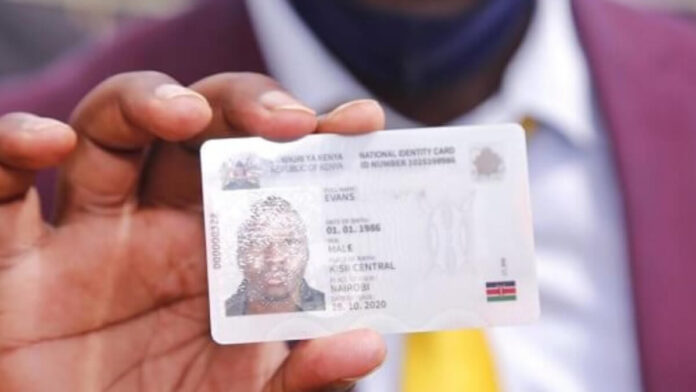The High Court has suspended any further roll-out of Kenya’s new digital identity cards popularly known as Maisha Namba until the determination of a suit filed by Haki na Sheria Initiative. Justice Lawrence Mugambi issued orders suspending the implementation of Maisha Namba, Maisha cards, and the Maisha Database on July 24, citing irreversible harm that may be occasioned to the people if the process is found to be unconstitutional by the court.
“Based on the latest information,” Judge Mugambi said, “the court is convinced that an order suspending any further or continued implementation of Maisha Namba, Maisha Card, and Maisha Database pending the hearing and determination of this application ought to be issued.”
It is on this basis that Haki na Sheria Initiative, in a letter dated August 24, 2022, raised its concerns with respect to a circular dated July 22 that declared the commencement of mass data collection, processing, and storage for Maisha Namba and enrollment into the Maisha Database. Accordingly, it provided for three modes of getting enrolled into the Maisha ecosystem:
- Issuing Maisha cards to newborns.
- Providing them to first-time ID applicants at 18 years old.
- Replacing lost IDs for adults with 2nd generation IDs.
It is on this basis that the petitioner seeks grounds for quashing the entire rollout of the Maisha ecosystem on grounds of a potential massive personal data breach and permanent exclusion of certain groups. Further to that, Haki na Sheria argues that the entire Maisha ecosystem has no safeguards with respect to the handling of personal data, thus exposing the public to a huge privacy risk.
“There’s a substantial risk of harm to the public and their right to privacy, publishing certain types of personal information without proposals on how the data will be protected,” say the petition documents.
Haki na Sheria further claims that the rollout may further accentuate existing inequalities in Kenyan citizenship. Children from minority and marginalized communities face barriers to obtaining birth certificates and citizenship documents, mainly due to inaccessible registration centers and a lengthy second vetting for parents and grandparents.
The same happens to double-registered individuals. Haki na Sheria warns that if the state proceeds with the Maisha Namba process, hundreds of thousands of people will be left in limbo—unable to acquire or replace their Maisha cards without a 2nd generation ID. This exclusion could impact access to government services, education, and healthcare.
Justice Mugambi has ordered the petitioner to serve the application on the Attorney General, CS Interior, Director General of Kenya Citizens and Foreign Nationals Management Service, Principal Registrar of Births and Deaths, and Principal Registrar of Persons, by July 26. Further directions are due September 17.

